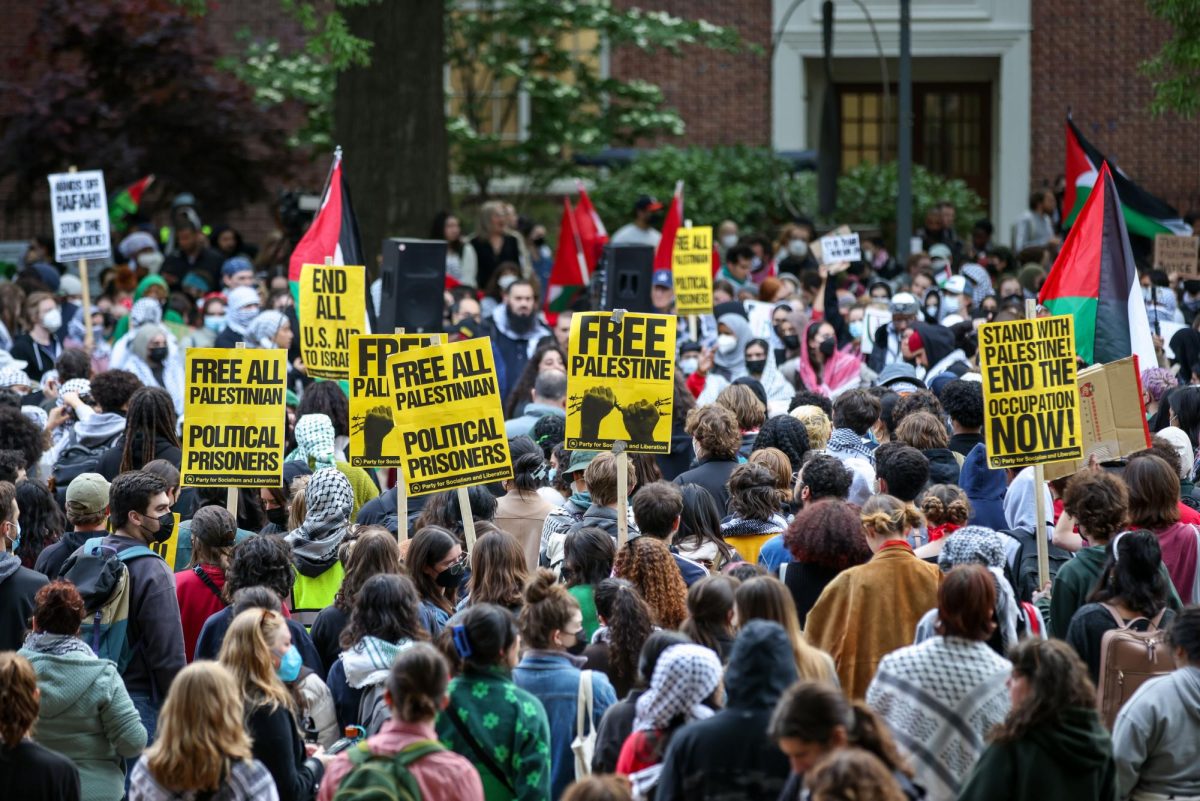It’s been 54 years since the creation of the state of Israel and last week there was yet another suicide bombing in Tel Aviv. While I condemn any and all violent actions against others, I do not feel we are making a full attempt to get to the heart of the matter that is driving 13- and 14-year-old Palestinians to walk into Tel Aviv cafes and blow themselves up. We must look at their lives in the occupied territories leading up to that point and at the economic and social factors that lead them to make such drastic decisions in the first place.
I am not Jewish. I cannot pretend to know what it is like to be Jewish and I am making no attempt to speak out against Israel, its policies or its right to exist – that is not my intent. I understand and agree that politics, social tensions and religious differences are at the root of the problem; however, there is a socio-economic view of the situation that is rarely explored. It shows how economic disparity creates an endless cycle of despair. It is a picture of the daily life of a Palestinian.
According to the United Nations and various international aid organizations, the occupied territories have a total refugee population of 3.8 million. By October 2001, 64 percent of all documented refugees were living below the poverty line, including a rate of 80 percent in Gaza alone. By April 2002, the rate of poverty in the occupied territories reached 75 percent, with 81.2 percent of households in the West Bank and Gaza in need of humanitarian assistance. Even more alarming is the rate of childhood poverty – because the territories have a very young population, with as many as 53 percent younger than 18, more than two-thirds of children live in poverty. If half the population of the occupied territories are children, that means at least half the population is innocently suffering the devastating consequences of a conflict into which they were born and had no hand in creating.
Unemployment is severe, at an overall rate of 37 percent and a 48 percent rate in Gaza. In terms of health statistics, as of Aug. 5 almost 23 percent of children younger than five suffered from acute or chronic malnutrition. As many as 60 percent of children in Gaza suffer from parasitic infections. This past summer, the West Bank suffered from a severe water shortage – there were as many as 200,000 people in 200 communities without a water network – leading to malnutrition and disease, which compounds the already desperate economic situation.
Birth defects and physical and mental disabilities are a severe problem for Palestinian children, as a result of the inevitable inbreeding that occurs from restricted movement within the territories. There are a staggering number of deaf, physically disabled and mentally challenged children in the occupied territories; in fact, several non-governmental organizations have helped private schools.
The statistics I have provide do not take into account the post-traumatic stress Palestinian children suffer from witnessing violence and poverty on a daily basis.
I had the opportunity to read profiles of students attending private schools funded by NGOs in the West Bank, Gaza and East Jerusalem. I was astounded by the number of children raised in either single-parent households or households in which one parent was physically disabled or was so unable to provide for the children with donations from NGOs, they lived at their school or with a friend. I cannot express to you how heartbroken I was when I saw how many children had dead fathers.
These children are growing up in an environment of daily violence, poverty and hopelessness. It is easy to see how this would create generations of angry and desperate youths. Already, their five- and six-year-old brothers and sisters are witnesses to their parents’ deaths, and they fear for their own lives. They understand their lives will always be this way as long as they are living in such squalor. I understand the need for Israel to protect itself but, while Israel is taking steps to prevent suicide bombings and protect its citizens now, it is not taking adequate steps to prevent the next generation of Palestinians from going in the same direction.
Political leaders need to ensure Palestinian children’s to education and economic prosperity, so that they can rise above their situation and create meaningful lives. Both sides need to recognize that human rights include the right to live and work in a non-threatening environment, regardless of religion or ethnicity. Programs such as “Seeds of Peace” (a camp which brings together Palestinian and Israeli children to foster cooperation, friendship and understanding) and non-political, international development programs need to be valiantly supported. They can create a sense of hope in the youngest generation that a peaceful future is possible.
Anyone can put a Band-Aid on a wound, just as they can put up a wall or a checkpoint, but it is taking steps to prevent a virus before it arises that can create long-term, realistic solutions and prevent another generation of both Israelis and Palestinians from growing up in violence.
-The writer is a senior majoring in international affairs.





